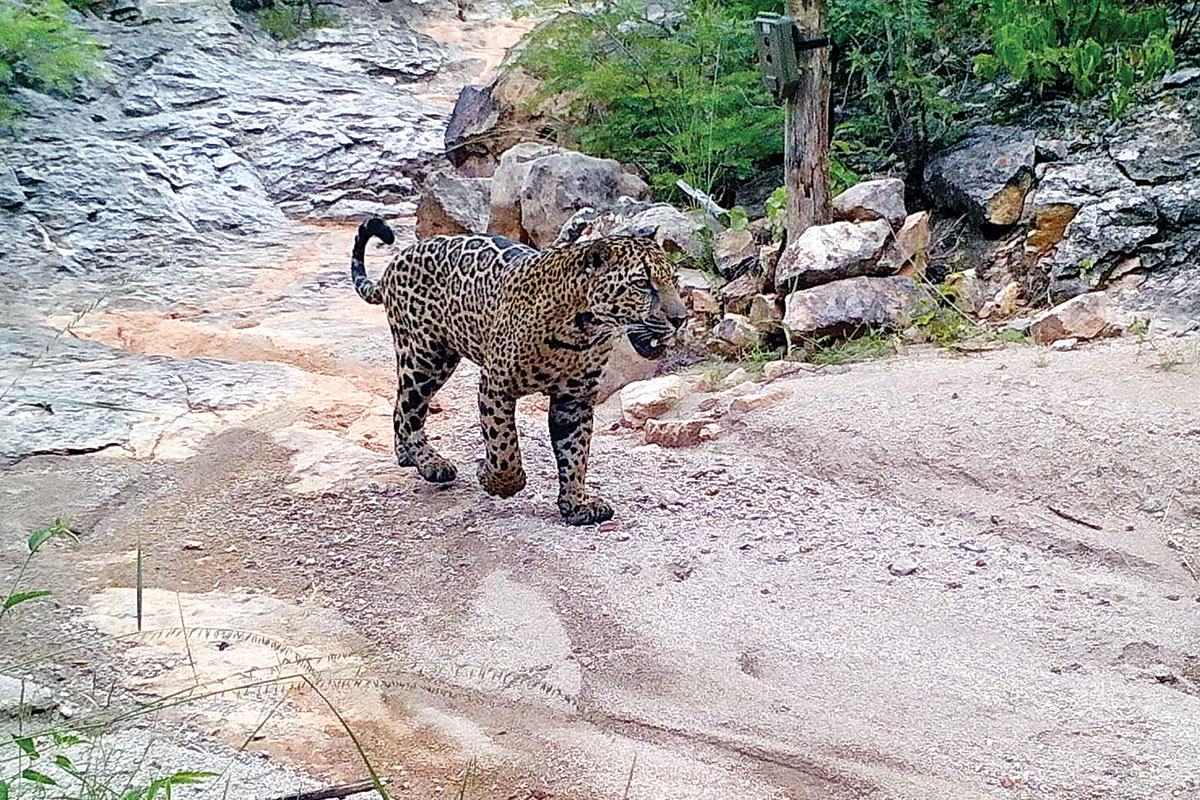Making a rhino-sized impact. Since 2016, the Zoological Society of London and various partners have been devising an impact investment to bolster the numbers of wild black rhinos. Private investors fund on-the-ground rhino conservation projects that aspire to achieve clear and measurable outcomes, such as boosting net rhino growth rates in priority populations. If conservation groups meet the objectives, “outcome payers” will reimburse the initial investment, plus a percentage that hinges on the outcomes achieved. With the black rhinoceros population estimated at 5,500 animals today—a plunge of more than 90 percent since 1970—the novel project is a welcome innovation in conservation for the species.
Who owns the algae? In Maine, there’s been a years-long dispute about who has the legal right to harvest rockweed on private property. The seaweed-like brown algae grows in the intertidal area and fuels a $20 million industry, mostly in fertilizer and animal feed. A marine-products company claimed that harvesting rockweed was a public right as a form of fishing. Last year, PERC and the Pacific Legal Foundation filed an amicus brief in the case in support of coastal landowners and their right to conserve or harvest rockweed as they see fit. In March, the Supreme Judicial Court of Maine sided with property owners, a decision that will avoid a potential tragedy of the commons.
Droning on about property rights. In the Philippines, only about half of the country’s 24 million land parcels are formally titled. The Foundation for Economic Freedom is working with government officials, academic researchers, and drone enthusiasts to try to change that. The group uses aerial photography captured by drones to create maps that define parcel boundaries. Digitized surveys are then submitted to the government to gain title. By turning informal rights into formal ones, land titles encourage stewardship and allow landowners to capitalize on their assets.
Feline fine in Sonora. Jaguars were extirpated in the United States long ago after being hunted, trapped, and poisoned by settlers and ranchers, who were encouraged by bounties paid by Southwestern states. Since 2003, the Northern Jaguar Project and its sister organization Naturalia have purchased five private ranches in northern Mexico to conserve habitat for the big cat. The project also pays neighboring ranchers who capture photos of jaguars on their properties—in cash, and on par with the local bounty for a dead cat. The effort has built tolerance with neighbors and effectively expanded the reach of the 55,000-acre reserve in the state of Sonora.
Farming for butterflies. The monarch butterfly is a cherished insect, yet its population has fallen well below historical levels, and it is being considered for listing under the Endangered Species Act. Milkweed is critical for monarch breeding and feeding, but increased herbicide use in agriculture has meant less milkweed available for monarchs. A new program by the Environmental Defense Fund aims to conserve monarchs by paying farmers to plant milkweed. The Monarch Butterfly Habitat Exchange is creating a market for habitat along the butterfly’s cross-country migration paths, benefiting farmers and butterflies alike.
Saving the forest for the trees. When Montana proposed a large timber sale near Bozeman, some residents opposed the project. Since the state is mandated to maximize revenues from its trust lands, a local group hatched an innovative strategy: try to outbid logging companies to keep the trees standing. In March, the group Save Our Gallatin Front did just that—raising more than $400,000 to defer timber harvesting in the area for another quarter century. It’s the first time a “timber conservation license” has been awarded at such a scale in Montana, an outcome that will generate significant funds for the state while compensating for foregone timber revenues.
Save a species, win a prize. The expansive public lands package signed into law in March included a little-known but potentially important tool for wildlife conservation: cash prizes. The Theodore Roosevelt Genius Prizes, administered by the U.S. Fish and Wildlife Service and the National Fish and Wildlife Foundation, will award $100,000 to innovators who devise technological solutions that benefit wildlife. Prize categories include endangered species protection, poaching prevention, invasive species management, wildlife conservation, and human-wildlife conflict management.
Insuring a future for elephants. Conservationists are piloting an insurance scheme in Kenya to manage human-elephant conflicts that plague rural communities and contribute to poaching. The Livelihoods Insurance for Elephants project, an effort of AB Consultants and the International Institute for Environment and Development, aims to develop a scheme with commercial insurers. The initiative will leverage nonprofit support and link payments to the implementation of preventative measures. Project backers hope the insurance will increase community tolerance for elephants who have killed more than 200 people over the past decade.



